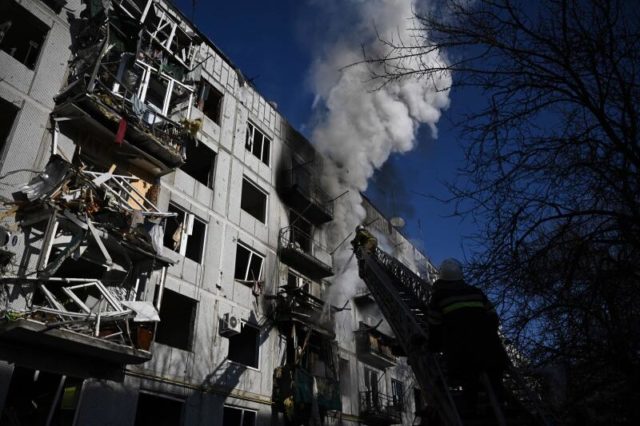‘We shall take serious strain, there will be no growth’ – economist
ECONOMISTS have warned of dire economic strain for South Africa as world powers intend to slap Russia with more sanctions following Moscow’s military operation in Ukraine.
The US and its allies have begun with sanctions after months of failed attempts to convince Russian Federation leader President Vladimir Putin not to conduct any military operation in the Eastern European country.
However, the defiant Kremlin sent its army to neighbouring Ukraine to defend separatists in the east from “genocide”.
In defence of his move on Ukraine, Putin said the action was in response to threats coming from Ukraine, and that Russia does not have a goal to occupy Ukraine.
He accused the US and its allies of ignoring Russia’s demand to prevent Ukraine from joining Nato and offer Moscow security guarantees.
With more sanctions expected to be enforced against Russia, South African economists have raised their concerns as the surge in oil prices continues.
Independent economics Professor Bonke Dumisa said although it was not desirable for any country to be invaded, the conflict between the two countries should not be blamed on Russia only.
“The matter of Ukraine’s intention to join Nato is a problem for Russia; as a former Soviet Union leader, Russia would never allow this because it would bring the US closer to its borders and threaten its security.
“How it affects us is that the fuel prices are going up as of Wednesday (tomorrow) and this will affect everyone in the country. On Thursday last week, crude oil prices went up and this means as the consumers, we shall take serious strain, and therefore, there will be no economic growth at all.”
Dumisa said that the country traded with both Russia and Ukraine, and that wheat was one of the products affected, which meant that anything made from wheat would be affected.
“South Africa must immediately switch over and find alternative partners it will import from before full sanctions come into effect.
“If these sanctions against Russia come into effect, countries doing business with the Kremlin will be negatively impacted.”
Dumisa also stressed that Russia was a strategic partner of South Africa, and the federation had always been a good friend to the country, which was the reason why it was difficult for South Africa to not distance itself from the ongoing conflict.
“Ukraine’s desire to join Nato is out of line and it will trigger more challenges. If ever they have leadership that is pragmatic, they must withdraw their Nato application and choose peace,” said Dumisa.
Chairperson of Muslims for Humanity and CEO of Willowton Group, Zubeir Moosa, echoed Dumisa’s sentiments and expressed concern about the negative impact the conflict would have on the country.
“Ukraine is the number one supplier for oil, and Russia is the second. Now, the oil price has been on the rise over the last 18 months.
“So, the current conflict will have severe consequences for South Africa in the next few weeks, if not resolved. There is already an increase in the oil price due to it, at 25-30%,” said Moosa.
South Africa and Russia are both members of the BRICS bloc, which includes Brazil, India, and China. The BRICS members have not been vocal in condemning Russia, except for South Africa, which last week called for Russia to withdraw its forces in Ukraine.
In defence of his move on Ukraine, Putin said the action was in response to threats coming from Ukraine, and that Russia does not have a goal to occupy Ukraine.
He accused the US and its allies of ignoring Russia’s demand to prevent Ukraine from joining Nato and offer Moscow security guarantees.
Daily News








